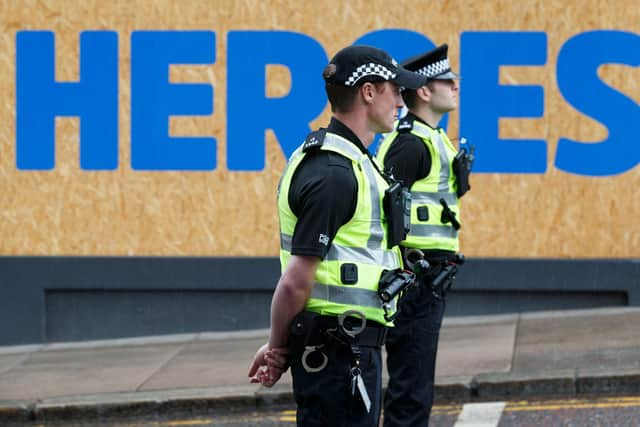'Campus cops' play a hugely important role in Scotland's schools – Karyn McCluskey
There are plans for a school violence summit this autumn to talk about some of the challenging behaviour in classrooms that has hit the headlines recently. It’s a difficult time for all involved. Teachers engaging with young people in a post-Covid pandemic world see the impact of the most extraordinary time in recent history on our young people’s well-being and behaviour.
It's worth remembering that violence in young people can be the manifestation of deeper problems: issues at home, frustration, anger, an inability to self-express and so much more. There is also self-directed violence – self-harm and suicide, which is the fourth leading cause of death for 15 to 19-year-olds. I hope the summit talks about that too.
Advertisement
Hide AdAdvertisement
Hide AdWhen John Carnochan and I started the Violence Reduction Unit, we recognised that young people are victims of crime also – in the home through violence or sexual abuse or in the community. We wanted them to be able to approach a known person, someone who they recognised and who would act on their behalf. Young people don’t tend to phone 101 or 999 or turn up at a police station front counter, and we wanted them to know that the police were there for them too. Hence campus police officers were introduced.
Young people lead often complicated, stressful lives, and may not have someone to speak to in their lives. A police inspector I met this week, told me he was one of the first campus officers attached to schools in Scotland. The narrative around these ‘campus cops’ has got lost in some reporting over the years.
The inspector said it was the best role he had ever had and that 13 young people had joined Police Scotland from his small community. He was frequently stopped by people in their 20s and 30s who remembered him from his school role and who engaged with him in a different way. When he spoke about it, he had a broad smile – he knew that he had an impact on lives.
The role has never been about arresting young people or maintaining discipline, but connecting the community to the school. Knowing that the police had attended a domestic abuse incident at the home where a pupil lived was crucial to supporting that young person the next day and often contextualising the behaviour that the teachers were seeing in school.
It was always difficult to measure their impact. Prevention is always difficult to measure, but absence of evidence is not evidence of absence. Key performance indicators don’t capture the wonderful work that they do, and definitely not the discretionary efforts they make with so many young people.


This is a peculiarly Scottish role. They operate as role models for many young people who have none in their lives and who sometimes gravitate towards them. I saw so many of the officers out of uniform and in civvies around school events, humanising the role and portraying a different police service.
A senior officer once said dismissively that he didn’t think that campus officers were a good use of police time; they wanted more stop and search, more arrests on the street. Yet the school is a community, full of complex lives, which deserve support.
Karyn McCluskey is chief executive of Community Justice Scotland
